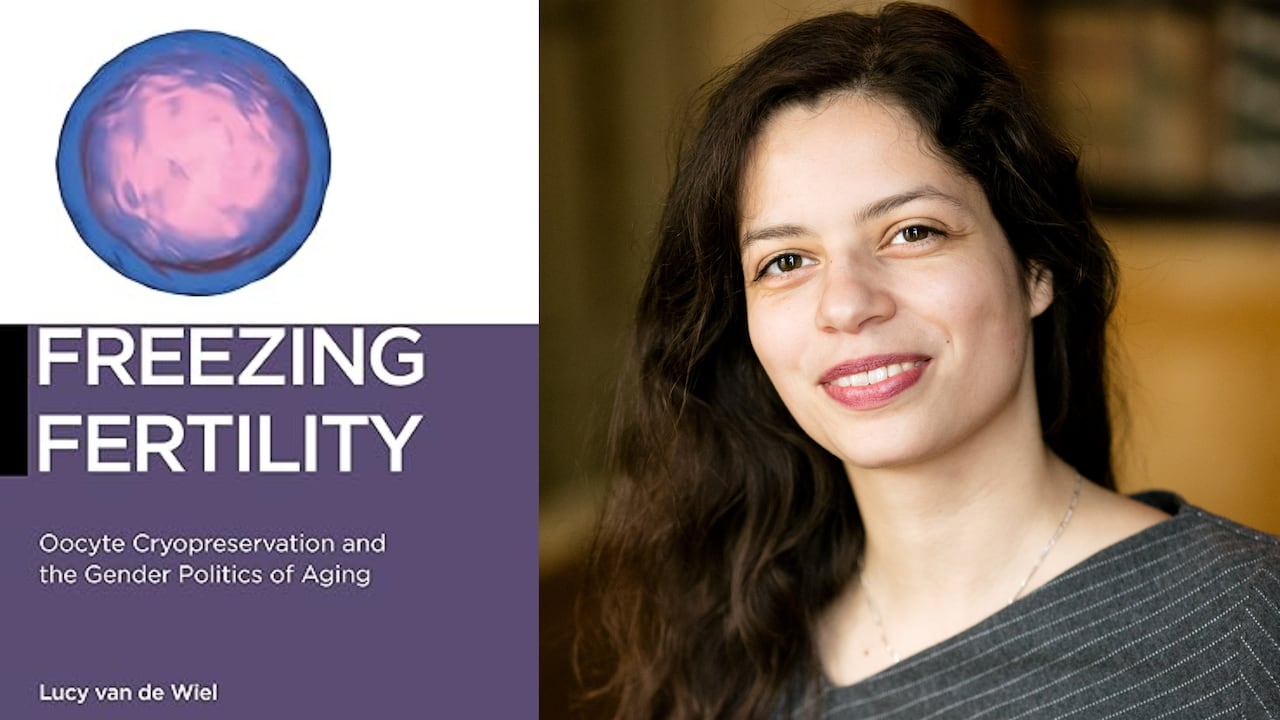Ideas53:59Egg freezing in an era of uncertainty
Toronto lawyer Salima Fakirani was 31 when she decided to freeze her eggs. She thought about it for a couple of years and even went to a consultation at a fertility clinic. But when her employer introduced egg freezing benefits, she decided to go for it.
She did two rounds of egg freezing and put a “good amount” of eggs into storage.
“I felt like I bought myself some time,” she said. “I felt like a weight had been lifted off my shoulders.” She joked with her mother that her grandchildren were hidden in the freezer somewhere, so she no longer had to worry about it.
Fakirani first heard about egg freezing from female colleagues at a large law firm in Toronto. The idea is that you remove eggs from your ovaries when you're young and store them in ice until you need them, reducing the risk that you won't be able to have children when you're finally ready.
Egg Party Business
Some believe that egg freezing allows women to take control of their fertility. Other experts, however, warn that the fertility industry is simply profiting from the tension women feel between building a career and starting a family.
Eggs are difficult to freeze and thaw without causing harm. It wasn't until the early 2000s that a technique known as “vitrification” came onto the scene.
In 2012, egg freezing was no longer considered “experimental”—it had become popular.
Fertility clinics wanted every young woman to know about this. They hosted “egg freezing parties” where young women could drink cocktails and learn about the dwindling egg supply. They offered free fertility testing. They had catchy advertising.
By 2014, several major technology companies had introduced egg freezing incentives as part of their employment packages. They believed this would help attract and retain female talent. And many women became interested.
But others felt uneasy.
“What does it really mean to a woman when you say your company will pay for egg freezing?” asks Lucy van de Wiel, senior lecturer in global health and social medicine at King's College London in the UK and author of a book called Birth freeze.
Some people believe it actually hinders reproduction, says van de Wiel: Why start a family now when your employer is paying you to put it off until later?
Not sure about parenting? Buy more time
Van de Wiel is interested in the business side of fertility. Egg freezing offers a big opportunity for growth for the industry, she said. In places where fertility is not covered by government health programs, clinics are increasingly controlled by private capital. And for direct investment, she says, the main thing is growth.
“It's not enough to have good revenue to have good profitability,” she says, “you have to show that the number of patients treated and revenue are growing year on year. And that’s where egg freezing comes in because egg freezing grows very quickly.”

According to the Canadian Registry of Assisted Reproductive Technologies, in 2013, only 94 Canadians electively froze their eggs, compared with 1,919 in 2024. In the United States in 2023 more than 39,000 people have selectively frozen their eggs.
Unlike treatments such as in vitro fertilization (IVF), which are intended for infertile people who want to conceive immediately, egg freezing services are intended for any woman who may want to have children in the future. She doesn't even have to know that she wants children – she just has to wonder if that's what she wants. That's a lot of potential clients.
Many people believe that women freeze their eggs to delay motherhood and pursue a career. But Marcia Inhorn, an anthropologist at Yale University who interviewed 150 American women who froze their eggs for her book Motherhood on Ice: Mating Period and Why Women Freeze Eggsit turned out otherwise.
The most common reason, she said, was that educated women had difficulty finding men interested in starting a family with them. The women froze the eggs, Inhorn says, to buy more time while they continued their search.

Many people believe that women freeze their eggs to delay motherhood and pursue a career. But Marcia Inhorn, an anthropologist at Yale University who interviewed 150 American women who froze their eggs for her book Motherhood on Ice: Mating Period and Why Women Freeze Eggsit turned out otherwise.
The most common reason, she said, was that educated women had difficulty finding men interested in starting a family with them. The women froze the eggs, Inhorn says, to buy more time while they continued their search.
Not knowing important information
Kathy Hammond, a law professor at the Metropolitan University of Toronto who specializes in issues related to assisted reproductive technologies, studied the permitting documents of Canadian clinics. She found that people who freeze their eggs are not always properly informed by clinics about the risks, costs or what using those frozen eggs to have a baby would entail.
Hammond says she has conflicting feelings about the practice. “I'm an optimist who believes that elective egg freezing has something to do with reproductive autonomy and giving people the option to delay childbearing unless they are in a situation where they cannot or do not want to have children at the moment.
“I think it also gives people who are unsure whether they want to have children a little freedom to think about that decision.”
According to her, she looks at it as a commercial business.
“Employers who offer benefits for this tend to do so in a work culture that tries to maximize the number of hours people work while they are young.”
Download IDEAS podcast to listen to this episode.








